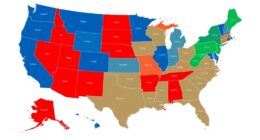Yes, warrants can show up on background checks. They come in various types such as arrest warrants and bench warrants, affecting different areas of life. Additionally, traffic warrants, civil warrants, and others can impact job opportunities and legal standing. Employers may uncover these warrants during thorough screenings, leading to potential consequences if left unaddressed. It's important to understand the implications of different warrants and take appropriate steps to resolve them promptly. Being proactive in addressing warrants can help avoid future complications and maintain a clean record. Understanding the types and effects of warrants is essential for managing background checks effectively.
Key Takeaways
- Warrants can show up on background checks, including arrest, bench, civil, and traffic warrants.
- Visibility depends on search depth, jurisdiction, and warrant type.
- Promptly resolving warrants is crucial to avoid legal consequences.
- Seek legal advice and comply with court orders to address warrants.
- Regularly monitoring legal records can help prevent surprises in background checks.
Types of Warrants on Background Checks
Arrest warrants and bench warrants are commonly encountered types that frequently appear on background checks. In addition to these, other types of warrants, such as traffic warrants, civil warrants for court order violations, and Capias Pro Fine warrants, might also show up on thorough background checks.
Fugitive warrants and open arrest warrants, however, may or may not be visible on standard background checks. It's essential to understand that the visibility of different types of warrants on background checks can vary based on the search criteria chosen.
Hence, when conducting or reviewing a background check, individuals should be aware of the specific types of warrants that could potentially be included in the results. By having a clear understanding of the types of warrants that may show up on background checks, individuals can better prepare themselves for any potential implications or discussions that may arise as a result of this information.
Bench Warrants and Background Checks

Bench warrants issued for failure to appear in court can be a significant concern when it comes to background checks. Here are some key points to understand about bench warrants and their impact on background checks:
- Public Record: Bench warrants are part of public court records, which means they can be accessed by employers performing background checks.
- Reasons for Issuance: Judges issue bench warrants for reasons like missed court appearances or violations of court orders.
- Job Opportunities: Employers conducting thorough background checks may uncover bench warrants, potentially affecting job opportunities.
- Legal Consequences: Ignoring a bench warrant can lead to legal consequences, including arrest and additional criminal charges.
It is essential to address bench warrants promptly with legal assistance to avoid further complications.
Being proactive in resolving any outstanding bench warrants can help individuals avoid negative consequences and maintain a clean background check for future job prospects.
Criminal Warrants in Background Screening
Criminal warrants, including various types such as arrest warrants and bench warrants, are a common aspect of background screening processes. These warrants are issued for different reasons, such as failure to appear in court for bench warrants and probable cause for arrest warrants.
When conducting background checks, employers may come across details of active criminal warrants, including civil warrants and traffic warrants, depending on the extent of the search.
Arrest warrants are typically issued when law enforcement has probable cause to believe an individual has committed a crime. Bench warrants, on the other hand, are often issued when someone fails to appear in court as required.
Employers who conduct thorough background checks may uncover these warrants as part of the screening process. It's essential for individuals to address any outstanding warrants to avoid potential legal issues that may arise during background screenings for employment or other purposes.
Civil Warrants on Background Checks

Civil warrants related to court order violations or non-compliance can have significant implications on background checks and individuals' legal standing. When it comes to civil warrants showing up on background checks, here's what you need to know:
- Impact on Job Opportunities: Civil warrants can affect job opportunities as potential employers may view them as a red flag indicating legal issues.
- Legal Proceedings: Having civil warrants can lead to legal proceedings, potentially resulting in fines, penalties, or other consequences.
- Access to Public Records: Civil warrants are part of public records, making them accessible to law enforcement agencies and employers conducting background checks.
- Types of Civil Cases: Civil warrants are issued for various civil cases, including non-payment of fines, failure to appear in court, or violating court orders.
Checking for civil warrants on background checks is essential for individuals to address any legal issues promptly and avoid complications in their personal and professional lives.
Traffic Warrants and Background Checks
Individuals should be aware that traffic warrants can also impact background checks, particularly when employers conduct thorough screenings that include warrant searches. Traffic warrants are issued for infractions like speeding tickets or other driving offenses.
If these warrants show up on a background check and are left unresolved, there can be legal consequences. Employers prioritize safety and responsibility, so they often incorporate warrant searches in their screening process to make sure they're hiring reliable individuals.
Failure to address traffic warrants promptly can reflect poorly on a candidate's judgment and responsibility, potentially affecting their chances of securing a job. It's essential for individuals to handle any outstanding traffic warrants promptly to avoid complications down the road.
Fugitive Warrants and Background Checks

Fugitive warrants are issued for individuals evading legal repercussions and mightn't always be immediately visible on standard background checks. However, specific roles like law enforcement may unearth these warrants during more thorough screenings.
National background checks that reveal fugitive warrants often prompt additional state-specific searches for a complete overview of an individual's legal standing.
Fugitive Warrants Visibility
How do fugitive warrants impact the visibility of individuals during background checks?
Fugitive warrants play a vital role in determining an individual's criminal history and overall risk assessment. Here's how they affect background checks:
- Limited Scope: Standard background checks may not always reveal fugitive warrants, potentially leaving important information undiscovered.
- Role-Specific Checks: Certain roles, like those in law enforcement, entail more thorough screenings that can uncover fugitive warrants due to the nature of the job.
- Cross-State Visibility: National background checks are instrumental in unearthing fugitive warrants issued in states other than the one being searched.
- Thorough Investigations: Opting for thorough background checks increases the likelihood of identifying fugitive warrants, providing a more detailed overview of an individual's potential involvement in criminal behavior.
Impact on Background Checks
The inclusion of fugitive warrants in background checks can greatly impact the thoroughness and accuracy of the screening process. While standard background checks may not always reveal fugitive warrants, jobs that require thorough background checks, like those in law enforcement, are more likely to uncover this information.
National background checks are particularly effective at identifying fugitive warrants issued across state lines, aiding in capturing suspects evading justice. Background check companies play an important role in conducting thorough searches to detect fugitive warrants, assisting employers in making informed hiring decisions.
Employers conducting in-depth background checks stand a higher chance of discovering fugitive warrants, which can have a significant impact on their hiring choices. Utilizing these tools ensures that the screening process is robust and helps maintain safety and integrity in workplaces.
Addressing Warrant Information
Employers and background check companies must diligently address warrant information to guarantee thorough applicant screening and informed hiring decisions. When dealing with fugitive warrants in background checks, here are some key points to keep in mind:
- Search Depth: The type of background check conducted plays a significant role in whether fugitive warrants might show up. More thorough checks, like those done for law enforcement roles, are more likely to uncover such warrants.
- Jurisdiction Matters: Fugitive warrants issued across state lines might be revealed in national background checks. This is important for identifying suspects evading justice.
- Verification Importance: Employers should verify the validity and status of any fugitive warrants that appear on background checks before taking action. Consulting with a criminal defense lawyer can provide guidance on handling such situations.
- Legal Ramifications: Failure to comply with a bench warrant can lead to authorities searching a residence. Employers must understand the whole process before making decisions that could impact both the applicant and the organization.
Resolving Warrants in Background Checks

Addressing warrants in background checks requires prompt action to resolve any legal issues associated with them. If a bench warrant or civil warrant appears on a background check, it's essential to take steps to address these matters.
The first step is to seek legal advice from a criminal defense attorney. They can help verify the existence of any warrants, understand the associated charges, and guide you on the best course of action.
Resolving warrants typically involves complying with court orders, potentially turning yourself in if required, and addressing any underlying issues that led to the warrant being issued. It's vital to follow through with these steps to clear the warrants from your record.
Once the warrants are resolved, it's advisable to monitor your legal record regularly to ensure accuracy and promptly address any discrepancies that may arise. By taking these actions, you can effectively resolve any warrants showing up on your background checks and prevent potential legal consequences in the future.
Frequently Asked Questions
Do Warrants Show up on Background Checks in California?
In California, warrants, including arrest, bench, civil, search, and traffic warrants, can indeed show up on background checks. Employers often review this information to assess job candidates' legal standing and potential risks.
How Long Do Warrants Last in Michigan?
In Michigan, warrants can last indefinitely until resolved, leading to potential arrest and legal consequences. Bench warrants for failure to appear in court can remain active until addressed by the individual, impacting various aspects of life.
How Long Do Warrants Last in Indiana?
Warrants in Indiana can remain active indefinitely until resolved or canceled by the court. Bench warrants for court no-shows and arrest warrants persist until addressed. It's important to address warrants promptly to avoid potential legal consequences.
How Long Do Warrants Last in California?
In California, warrants can last indefinitely until resolved. Bench warrants remain valid until recalled, while arrest warrants can stay active until the individual is apprehended. Failure to address warrants promptly can lead to serious consequences.
How Do Warrants and Misdemeanors Affect Background Checks?
When conducting background checks, employers often look for warrants and misdemeanors on background checks to determine a candidate’s criminal history. While warrants indicate pending legal issues, misdemeanors can signal a history of minor offenses. Both can impact a candidate’s standing, potentially leading to a missed job opportunity.
Conclusion
To sum up, warrants can show up on background checks, potentially causing issues for individuals. Just like a shadow following you wherever you go, warrants can linger in the background, impacting your opportunities.
It's important to address any warrants promptly to avoid complications down the road. Stay vigilant and take steps to resolve any outstanding warrants to guarantee a clear path forward.









